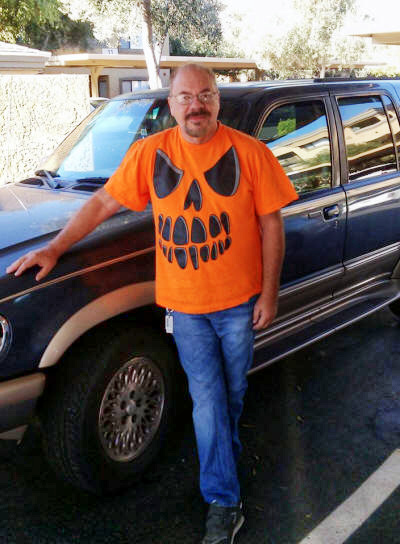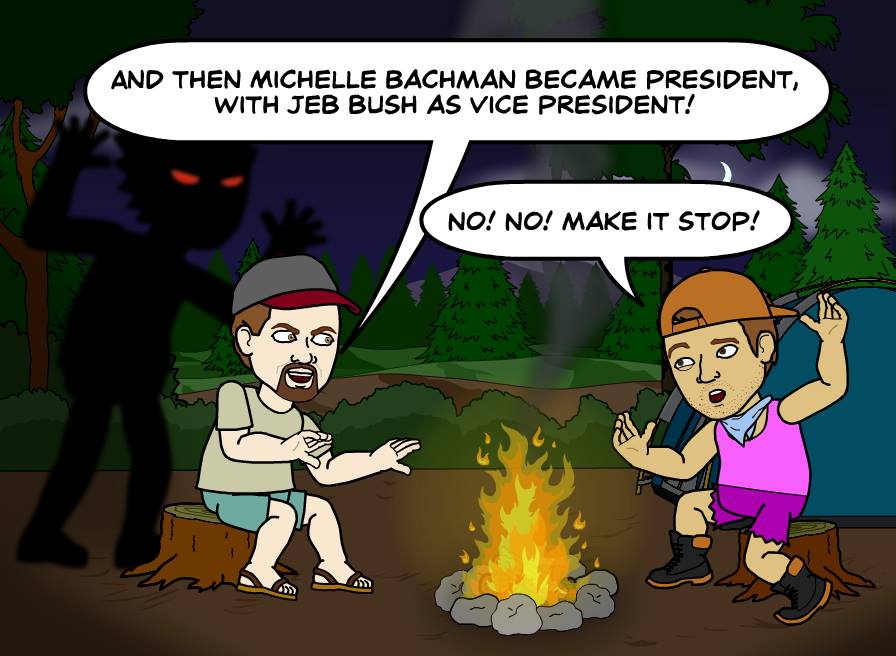| By: Paul S. Cilwa | Viewed: 4/16/2024 Posted: 10/31/2013 |
Page Views: 5091 | |
| Topics: #Halloween | |||
| Let's mull over the changes we've seen in the celebration of Halloween. | |||

When I was five, I attended my first Halloween party. Prior to that, I was unaware there was such a thing! as Halloween. I have no memory of kids coming to the door for candy, or anything about ghosts or witches, whatsoever. So I was a bit taken aback when my mom put me in a costume (I have no idea what it was) and dropped me off at a stranger's house. (I assume Mom knew them; but I had never met anyone there.)
I remember wandering aimlessly among other puzzled kids, and adults, all in costume. I remember a punch bowl and candy. But mostly I remember waiting patiently for it to be over, so I could go back home and resume my life.
The next year, and thereafter throughout my teenage years, I went trick-or-treating every year. But it was always strange to me. I knew that "Trick or treat!" was supposed to be a threat, but since I was expressly forbidden from actually playing any "tricks" the threat seemed to be singularly empty.
As years passed and I had more opportunities to talk with adults about their Halloween experiences—especially my grandfather—I had to face a couple of anomalies.
Assuming they were telling the truth, the adults had gotten into far more serious mischief in their childhoods than I would ever contemplate; and
I was supposed to like candy, but I really don't.
I've been told I was "born old" and this is probably an example of this. I have no problem with others celebrating Halloween (as long as no one is harmed in the celebration) but I have been unable to manifest the level of excitement that everyone else seems to enjoy.
This is especially a problem for me as a gay man, because apparently Halloween is also known as "Gay Christmas" and many, many gays and lesbians go all out. (This is similar to the way the Oscars are sometimes referred to as the "Gay Superbowl". I don't get excited about the Oscars, either. And I've never watched a Superbowl; I'm not even certain what sport is played in it.)

About 1965 I discovered UNICEF, the United Nations Children's Emergency Fund. I actually don't remember how I heard of them, but their "Trick Or Treat For UNICEF" was the first time I got really excited about Halloween. The idea was to get these coin banks from UNICEF, made of cardboard and shaped like milk cartons. Then, when we showed up at someone's door, we would say, "Trick or treat for UNICEF!" and, instead of candy, accept coins that would, eventually, help starving children around the world obtain food and medicine. We weren't supposed to ask for candy, just the coins…which was fine with me, but surprisingly I had a lot of trouble convincing my little sisters to join in. Louise, in particular, was only willing to participate if she could also get candy.
So we went from door-to-door in our costumes, and collected some $24 for UNICEF, and my sisters got some candy and even though I didn't want any, a couple of parents demanded I accept it in addition to the coins.
The nicest part of trick-or-treating for me? Walking alongside the ocean highway in the dark with my friends, telling spooky stories.

That Halloween is an ancient holiday is generally accepted; but I was surprised to learn there isn't much agreement on exactly howancient. There's a clear path back to the Celts in Ireland and Wales; many of our traditional Halloween rituals, such as the Jack-o-lantern, come directly from them (though, in the original story, Jack carried a lit coal in a turnip; this became an easier-to-work-with pumpkin when transplanted to North America.
The best documentation comes from the Church, so their claims that Halloween originated as part of a three-day celebration of those who have died—saints—in which November 1st is All Saints Day (a holy day of obligation, which means Catholics must attend Mass on that day), and November 2nd is All Souls Day. October 31st was celebrated as the evening of "All Saints" (known then as "Hallows". October 31, therefore, is All Hallows Evening, shortened over the centuries to Halloween.
But the Celtic pre-Christians are very likely to have celebrated October 31st in their indigenous religion. This has carried over into Wicca, where October 31st is celebrated as Samhain.
The Church, of course, has a long history of making itself more palatable to indigenous people by providing replacement holy days for forbidden, "pagan" feast days that occur on the same day and include many of the same features. That's how Christians ended up celebrating the birth of Jesus by taking a tree into their homes, the Christmas Tree having been a ritual associated with a Germanic mid-winter holiday.
Since the Church also demonizes the religion it replaces, the nature worshippers that preceded Celtic Christianity became "witches" and tales of their lurid rituals led directly to the witch-burning craze a few centuries later. These rituals were "documented" by priests who admitted they had never attended one, and in retrospect, seem to have no bearing on reality.
From the "tricks" performed by my grandfather as a boy (which included literally setting houses on fire), to the ones my contemporaries claimed to have done (setting fire to a bag of dog poop and leaving it on someone's porch, was a favorite; wrapping toilet paper around a house was another), to the ones my kids' friends did (jumping out of bushes to scare younger kids), one sees a clear path to a less dangerous celebration than Halloween previously was.
Kids are also tougher to scare. Though I guess when one never knows if today will be the day that a classmate comes to school with daddy's AK-47 and blows them all away, it's a little tough to get goose bumps over a pumpkin.





